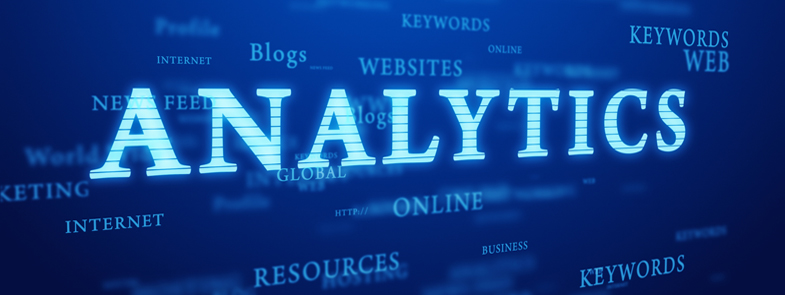It’s a brand-new year and time to take a look forward. Did you miss the headlines? AI is big news! But what does that really mean, and how might it affect you?
If you’ve been able to find a preview for the hot tech initiatives for 2019 that doesn’t list Artificial Intelligence (AI) at least once (and probably as item number 1), then you’re luckier than I. If that’s the sort of luck you’re looking for, that is.
Gartner, in its Top 10 Strategic Technology Trends for 2019, gives AI-related items the top three spots.
- “Autonomous things” nabs the top spot, with everything from robots to drones to agents getting ready to take over the world and perform tasks previously done by us humans.
- Next comes “augmented analytics.” This is considered the third wave of the analytics revolution, in case you missed the first two. It’s characterized by more automation of the process, thus both speeding it up and keeping human bias from creeping in. The result will be to allow analytics to be inserted into lots of places where before there just wasn’t time or manpower to do so.
- Finally, we have “AI-driven development,” which really consists of two approaches. The first is the development of non–data scientist AI tools, things that can be used by regular people like you or maybe even me. Ultimately, this may grow into something that ushers in the era of the “citizen application developer,” where everyone can create their own apps because it will be so easy. That should be great. The other approach is to embed some of those tools right into the development process so that much of what we do now can instead be done for us, leaving us free to do, you know, stuff.
Nor is Gartner crying in the wilderness alone. Nikita Duggal at Simplilearn also drew up a list. It’s different from Gartner’s in that it has only eight items on it but similar in that again the top three spots were devoted to AI.
- Item one was titled simply “AI,” and as you might expect, it covers the topic of AI in general, as a mega trend that is going to transform our world and redefine many of the terms we have taken for granted.
- From there she goes to “machine learning,” a process that’s central to Watson and involves training a machine to do things that it’s not specifically programmed to do, like determining from video input what parts are good and what are not. Or using data analytics information to make complex business decisions. This field is rapidly expanding and is expected to be worth about $8 billion by 2020. Plus, it will provide lots of jobs for developers, data scientists, engineers, and others.
- Finally, there’s “robotic process automation,” or RPA. This means machines are developed that can do many of the menial tasks that make up our lives—some 45 percent of our lives by some estimates. This is neither as technical nor as difficult as some of the AI trends, but it is without a doubt the one that will impact us the most, changing our lives, changing our jobs, changing our society in ways that we can imagine but not fully predict.
There are many others as well. I’ll let you Google “Tech Trends for 2019” on your own, but they are all similar in that they give AI at least one top spot on the list. And it must be true. I mean, I saw it on the Internet.
Am I Skeptical? Uh, Actually, No
You will find this hard to believe, but normally I am very skeptical of anything that is trendy. After all, I’m the one who once declared that I would never pay more than $4,000 for a new car. Uh, it was a while ago.
Anyway, I usually don’t even look at these “trends of the coming year” articles, mostly because no one ever asks me to write one but also because I think there is a big gap between what technology enthusiasts think is important and what people who actually have to pay for and deal with it think is important.
But AI is different. There’s no doubt that it’s more than a trend. It’s a tsunami, and it’s headed our way. And there will be a number of effects of this wave.
What Does It Mean for Me? Or Even You?
I guess that’s the real question, isn’t it? I know you don’t want to be selfish or anything, but frankly every time somebody brings up something new to me I can’t help but wonder what’s in it for me. So, as Ray Kinsella said in Field of Dreams, “What’s in it for me?” Or rather, for you, because I think first and foremost about you, my dear readers.
Run for Your Lives, the Robots Are Coming
If there’s one main thing we’ve heard from the popular press, it’s that the robots are coming. They are going to take our jobs, our hopes, our lives.
OK, maybe that’s a bit of a stretch. But definitely our jobs.
Within just the past few years, we’ve seen robots that can do all kinds of things: simple tasks, more-advanced tasks, specialty tasks if you know what I mean (nudge, nudge, wink, wink). Is that really where things are going?
Please, Everyone, Calm Down
Journalists and excitable bloggers aside, what do serious AI scientists think about the next few years?
I don’t have a consensus of AI scientists, but Rodney Brooks, the former head of the MIT Computer Science and Artificial Intelligence Lab, seems a reasonable source to start with. His full feel on AI and how it will affect us is contained within this Medium article.
The essence of his article is that while AI is becoming increasingly important, there’s a long way to go before we have robots that are ready to take our jobs and our places.
He starts by indicating how step-wise AI involvement is, using the Massachusetts tollway as an example. The process of eliminating toll booths—and therefore tollbooth operators—started by simply allowing some automobile owners to identify themselves via a transponder. The process then moved step by step over the span of a decade to no operators at all.
Most importantly, Rodney indicates there hasn’t been a major AI breakthrough in almost a decade. To him, AI is still a classification system but one that has no real feeling for what a given classification means. It will be when AI can make value judgments on a classification that it takes another leap forward.
But Until Then?
But until that happens, what should we do?
How do we need to prepare ourselves and our companies for what will surely be a robot—or at least an AI—apocalypse, something that truly changes our world and our role in it?
For the answer to that, stay tuned right here for the next several months.















 IT managers hoping to find new IBM i talent are discovering that the pool of experienced RPG programmers and operators or administrators with intimate knowledge of the operating system and the applications that run on it is small. This begs the question: How will you manage the platform that supports such a big part of your business? This guide offers strategies and software suggestions to help you plan IT staffing and resources and smooth the transition after your AS/400 talent retires. Read on to learn:
IT managers hoping to find new IBM i talent are discovering that the pool of experienced RPG programmers and operators or administrators with intimate knowledge of the operating system and the applications that run on it is small. This begs the question: How will you manage the platform that supports such a big part of your business? This guide offers strategies and software suggestions to help you plan IT staffing and resources and smooth the transition after your AS/400 talent retires. Read on to learn: Business users want new applications now. Market and regulatory pressures require faster application updates and delivery into production. Your IBM i developers may be approaching retirement, and you see no sure way to fill their positions with experienced developers. In addition, you may be caught between maintaining your existing applications and the uncertainty of moving to something new.
Business users want new applications now. Market and regulatory pressures require faster application updates and delivery into production. Your IBM i developers may be approaching retirement, and you see no sure way to fill their positions with experienced developers. In addition, you may be caught between maintaining your existing applications and the uncertainty of moving to something new.
LATEST COMMENTS
MC Press Online